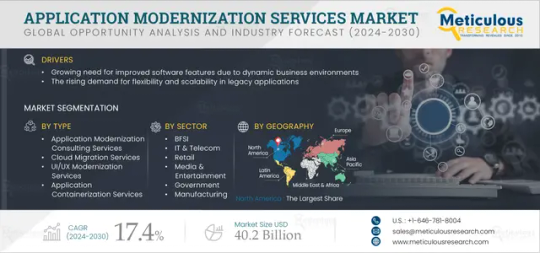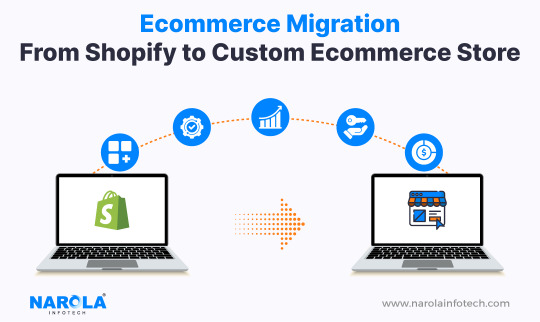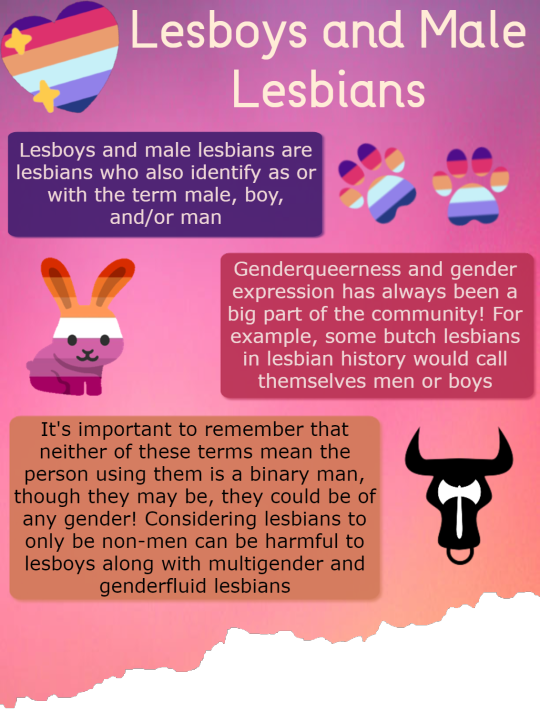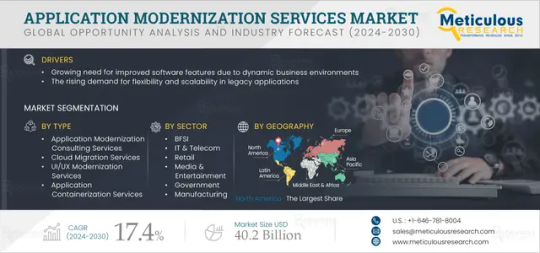#Replatforming
Explore tagged Tumblr posts
Text
eCommerce Replatforming Guide
Thinking about switching e-commerce platforms? 🤔
Worried about data loss, downtime, or customer frustration?
It doesn’t have to be that way.
Our guide reveals proven strategies to make your re-platforming smooth and stress-free — so you can focus on growing your business.
Read the full guide here: https://www.webuters.com/ecommerce-replatforming
Need expert guidance for a hassle-free migration? Let’s Connect: https://www.webuters.com/contact-us
3 notes
·
View notes
Text
Dive into the 7 R’s of cloud migration—rehost, replatform, repurchase, refactor, retire, retain, and relocate. Learn how each approach can help businesses transition smoothly to the cloud, ensuring minimal disruption and maximum efficiency.
#7 R's of cloud migration#cloud migration strategies#rehosting#replatforming#cloud transition#cloud computing#IT infrastructure.
0 notes
Text
Explore the differences between Shopify migration and replatforming to determine the right approach for your e-commerce business. Learn about the benefits, considerations, and which option aligns best with your goals. Plus, discover how Webgarh Solutions' Shopify Migration Services can streamline your transition to Shopify, ensuring a seamless and successful migration process.
#shopify migration#replatforming#e-commerce platforms#business growth#web development#shopify integration#webgarh solutions#ecommerce solutions
0 notes
Text
#magento#magento 2#ecommerce#replatforming#online store#digital transformation#ecommerce solutions#EvrigSolutions
0 notes
Text
Not gonna lie, I'm actually livid with the band right now. The only way to access the end of the video is to buy the app or buy something on the website.
I can't afford that.
Because I already bought tickets to one of their shows next month.
Because I'm already going to have to be off for several days to travel.
Because I've been saving up to buy merch at the show.
Does any of that matter?
No.
I can't afford the end of their story.
Because I'm already paying a ton of money to support them in person.
I just.
I'm already trying so hard.
I'm already being squeezed so tight just to stay alive
And I'm already fighting to make room for them
And they want more from me
I can't....
I'm not ok.
#ice Nine kills#i want to be excited#but im fucking heartbroken#i know they said theyd “fix” it#havent said how#or if “replatforming” it will effect the paywall#i was so ready#i cant even be happy about the video#because it ends with a#“hey! your poor! fuck you 😁😁😁”#like#its so fucking backhanded
15 notes
·
View notes
Text
Application Modernization Services Market Size, Report 2032

Meticulous Research®—leading global market research company, published a research report titled ‘Application Modernization Services Market by Type (Consulting, Cloud Migration, UI/UX Modernization, Application Containerization), Deployment Mode (Public, Private), Sector, Organization Size, and Geography- Global Forecast to 2032.'
According to this report, the application modernization services market is projected to reach $40.2 billion by 2032, at a CAGR of 17.4% from 2025 to 2032. The growth of this market is driven by the rising need for improved software features due to dynamic business environments, the growing demand for flexibility and scalability in legacy applications and enterprises’ rising inclination toward modernizing legacy applications with cloud capabilities. Furthermore, the existence of a large number of legacy and mainframe applications, the increasing focus on omnichannel integration, and the rising adoption of containerization to create and deploy applications faster and more securely are expected to create significant opportunities for market growth.
However, the high costs and complexities associated with application modernization services are challenges for market growth. Also, security and privacy issues associated with application modernization services and the lack of IT skills among employees restrain the growth of this market.
The application modernization services market is segmented based on type, deployment mode, sector, organization size, and geography. The study also evaluates industry competitors and analyzes the market at the regional and country levels.
Key Players
The key players profiled in the application modernization services market study are IBM Corporation (U.S.), Microsoft Corporation (U.S.), Oracle Corporation (U.S.), Hewlett Packard Enterprise Company (U.S.), HCL Technologies (India), Capgemini (France), Atos (France), Infosys Limited (India), Cognizant (U.S.), Dell Inc. (U.S.), Fujitsu Limited (Japan), Bell Integrator Inc. (U.S.), Kyndryl Holdings, Inc. (U.S.), Accenture (Ireland), and Softura (U.S.).
Based on type, the application modernization services market is segmented into application modernization consulting services, cloud migration services, UI/UX modernization services, and application containerization services. In 2025, the cloud migration segment is expected to account for the largest share of the application modernization services market. The segment’s large share is attributed to the growing need to boost application agility and flexibility, improve scalability and data security, and organizations’ rising inclination toward cloud platforms. The cloud migration segment is also expected to record the highest CAGR during the forecast period.
Based on deployment mode, the application modernization services market is segmented into public cloud and private cloud. In 2025, the public cloud segment is expected to account for the larger share of the application modernization services market. The segment’s large share is attributed to the easy accessibility and cost-effectiveness of public clouds and small and medium-sized enterprises’ increasing migration to public clouds. However, the private cloud segment is expected to record the higher CAGR during the forecast period.
Based on sector, the application modernization services market is segmented into BFSI, IT & telecom, retail, media & entertainment, healthcare & life sciences, government, manufacturing, transportation & logistics, energy & utilities, and other sectors. In 2025, the IT & telecom segment is expected to account for the largest share of the application modernization services market. The segment’s large share is attributed to IT & telecom companies’ rising need to increase operational efficiency, improve customer experience, and move from mainframe to cloud platforms. However, the BFSI segment is expected to record the highest CAGR during the forecast period.
Based on organization size, the application modernization services market is segmented into large enterprises and small & medium-sized enterprises. In 2025, the large enterprises segment is expected to account for the larger share of the application modernization services market. The segment’s large share is attributed to large enterprises’ utilization of a vast number of legacy applications and their growing need to increase the flexibility and scalability of legacy applications.
Based on geography, the application modernization services market is segmented into North America, Europe, Asia-Pacific, Latin America, and the Middle East & Africa. In 2025, North America is expected to account for the largest share of the application modernization services market. North America’s large share is attributed to the region’s robust IT infrastructure, investments in digital infrastructure, and the existence of large enterprises. However, Asia-Pacific is expected to record the highest CAGR during the forecast period, mainly due to regional enterprises’ increasing adoption of cloud-based technologies, their need to optimize legacy applications, and growing digital transformation initiatives.
Download Sample Report Here @ https://www.meticulousresearch.com/download-sample-report/cp_id=5521
Key Questions Answered in the Report:
Which are the high-growth market segments based on type, deployment mode, sector, organization size, and geography?
What is the historical market size for application modernization services across the globe?
What are the market forecasts and estimates for the period 2025–2032?
What are the major drivers, opportunities, and challenges in the global application modernization services market?
Who are the major players in the market, and what are their market shares?
How is the competitive landscape in the global application modernization services market?
What are the recent developments in the global application modernization services market?
What are the different strategies adopted by the major players in this market?
What are the key geographic trends, and which are the high-growth countries?
Who are the local emerging players in the global application modernization services market, and how do they compete with the other players?
Contact Us: Meticulous Research® Email- [email protected] Contact Sales- +1-646-781-8004 Connect with us on LinkedIn- https://www.linkedin.com/company/meticulous-research
#Application Modernization Services Market#Application Modernization Services#Application Modernization#Application Replatforming#Application Rehosting#Legacy Modernization#Cloud Modernization
0 notes
Text

Navigate the complexities of e-commerce replatforming with our expert consultancy services. Whether you're migrating to a new platform or upgrading your existing one, our team provides strategic guidance to ensure a seamless transition. From assessing your current needs and selecting the right platform to managing data migration and optimizing for SEO, we streamline the process for enhanced performance and user experience. Partner with Brad Advertising's e-commerce replatforming consultancy to maximize efficiency and achieve long-term success for your online store.
#e-commerce replatforming#online store migration#platform upgrade consultancy#e-commerce transition strategy
1 note
·
View note
Text
Switching from Shopify to a Custom Ecommerce Platform: A Smart Move for Your Business

One such decision that can significantly impact your online store's performance is replatforming. If you're currently using Shopify and contemplating a shift to a custom ecommerce platform, you're on the right track towards unlocking new opportunities for growth and success.
Understanding Ecommerce Replatforming
Ecommerce replatforming refers to the process of migrating your online store from one platform to another. In this case, it involves transitioning from Shopify, a popular hosted ecommerce solution, to a custom-built ecommerce platform tailored specifically to your business needs.
Why Consider Replatforming?
1. Customization Freedom
While Shopify offers a range of templates and customization options, a custom ecommerce platform provides unparalleled flexibility. You can design every aspect of your store, from the user interface to the checkout process, ensuring a unique and seamless shopping experience for your customers.
2. Scalability and Performance
As your business grows, so do your requirements. Custom platforms are built to scale effortlessly, handling increased traffic, transactions, and data without compromising performance. This scalability ensures that your store can adapt to changing demands and deliver a consistently high-quality experience.
3. Enhanced Brand Identity
Stand out in a crowded market by showcasing your brand identity through custom design elements, functionalities, and features. A custom platform allows you to express your brand's personality and values, fostering stronger connections with your audience and driving brand loyalty.
4. Ownership and Control
With a custom ecommerce platform, you have full ownership and control over your store's infrastructure, data, and future developments. This level of control empowers you to make strategic decisions, implement advanced marketing strategies, and optimize performance without limitations.
Making the Transition Smooth
Replatforming can seem daunting, but with proper planning and expert guidance, it can be a seamless process. Here are key steps to ensure a smooth transition:
Evaluate Your Needs: Identify your current pain points, growth objectives, and must-have features for the new platform.
Choose the Right Partner: Select a reputable ecommerce development company with experience in custom solutions and migration services.
Plan and Test: Develop a comprehensive migration plan, test extensively, and ensure data integrity throughout the process.
Optimize and Iterate: Continuously monitor and optimize your new platform based on analytics and user feedback to drive ongoing improvements.
Conclusion
Replatforming from Shopify to a custom ecommerce platform is a strategic move that can elevate your online business to new heights. By leveraging customization, scalability, brand identity, and control, you can create a differentiated shopping experience that resonates with your customers and drives sustainable growth. Ready to embark on your replatforming journey? Explore the possibilities with Narola Infotech, a trusted partner in crafting bespoke ecommerce solutions tailored to your unique business requirements.
#Shopify to a Custom Ecommerce#Ecommerce Replatforming#ecommerce migration#Shopify Limitations#migrate from shopify#create a custom ecommerce store
0 notes
Text
Lesboy and Male Lesbian Infographic - repost from my friend thelesbianbakugou


Since his account got terminated a few years ago, me and thelesbianbakugou decided to replatform this lil info sheet! There's one on mspec lesbians too but we just have to find it
Sadly we don't have access to the original image credits, if you know who made some of the images, please let us know and we'll credit them here!
tags for reach woo! @mogai-place @mogai-sunflowers @neopronouns @genderqueerdykes @ghosttypebeat @our-lesboy-experience @transonlyspace @mogai-faggot @enbermoonlish
#lesboy#quinfographic#male lesbian#lesbian#mogai#radinclus#trans#transmasc#genderqueer#nonbinary#lgbtq#inclusion#inclusivity#he/him lesbian#lesbian positivity#lesbian awareness week#sapphic#wlw#nblw#queer#mogai flag#infographic#queer infographic
2K notes
·
View notes
Text
eCommerce Replatforming Guide
𝟵𝟰% 𝗼𝗳 𝘂𝘀𝗲𝗿𝘀 𝗰𝗮𝗿𝗲 𝗮𝗯𝗼𝘂𝘁 𝗲𝗮𝘀𝘆 𝗻𝗮𝘃𝗶𝗴𝗮𝘁𝗶𝗼𝗻 — 𝘪𝘴 𝘺𝘰𝘶𝘳 𝘦𝘊𝘰𝘮𝘮𝘦𝘳𝘤𝘦 𝘱𝘭𝘢𝘵𝘧𝘰𝘳𝘮 𝘥𝘦𝘭𝘪𝘷𝘦𝘳𝘪𝘯𝘨?
❌ Struggling with performance issues?
❓ Not sure which platform fits your store best?
Thinking about migrating but don’t know where to start?
We’ve got you.
Check out our step-by-step 𝗲𝗖𝗼𝗺𝗺𝗲𝗿𝗰𝗲 𝗿𝗲𝗽𝗹𝗮𝘁𝗳𝗼𝗿𝗺𝗶𝗻𝗴 𝗴𝘂𝗶𝗱𝗲 to make the switch stress-free: https://www.webuters.com/ecommerce-replatforming
𝗡𝗲𝗲𝗱 𝗲𝘅𝗽𝗲𝗿𝘁 𝗵𝗲𝗹𝗽? Let’s connect with our eCommerce specialists: https://www.webuters.com/contact-us
1 note
·
View note
Text
Real, though I can see Ken Akamatsu’s political work getting brought up abt it.
(This is entirely fair, he is a politician, he did write a right wing manga where he fights white leftists who call out attacks named shit like “affirmative action”.)
Shaft will be 50 this year I wonder what they’ll do given everything ever existing.
#nadreblog#nahdeko#it’s not that negima is bad it’s that Ken akamatsu is a discourse lightning rod#he’s already controversial in Japan#granted#it’s not like other mangaka or creators aren’t guilty of similar things#like many mecha legends kinda fell into conspiracy over time#spy x family has like an assistant that’s like an anti trans trans woman#I won’t get too into it tho#regardless#I could see it getting more adaptions#Ruroni does after all#granted analyzing that situation is a nightmare and of very different circumstance#nightmare bc of how bad things are at jump and how to denote accountability in that work culture#nightmare in how you see creators that support him there like oda who was a former assistant who helped replatform him#nightmare in the systemic implications of that#and nightmare in what his crime actually is
8 notes
·
View notes
Text
…
About 150 people carrying St George’s Cross flags, shouting “you’re not English any more” and “paedo Muslims off our street”, were greatly outnumbered in Leeds by hundreds of counter-protesters shouting “Nazi scum off our streets”. Skirmishes broke out between demonstrators and punks – in town for a festival – in Blackpool, with bottles and chairs thrown.
In Bristol, police kept protesters and counter protesters apart before a group headed to a hotel used to house asylum seekers.
The need for urgent political intervention was stressed by the government’s independent adviser on political violence and disruption, Lord Walney, who told the Observer that new emergency powers may be needed. “The system isn’t set up to deal with this rolling rabble-rousing being fuelled by far-right actors,” he said.
“I think home office ministers may want to look urgently at a new emergency framework – perhaps temporary in nature – that enables police to use the full powers of arrest to prevent people gathering where there is clear intent to fuel violent disorder.”
Keir Starmer held a meeting of senior ministers on Saturday in which he said police had been given full support to tackle extremists who were attempting “to sow hate by intimidating communities”. He made clear that the right to freedom of expression and the violent scenes over recent days were “two very different things”.
Last week’s riots followed the killing of three young girls at a Taylor Swift-themed dance class in Southport on Monday. Axel Rudakubana, 17, from Lancashire, is accused of the attack, but false claims were spread online that the suspect was an asylum seeker who had arrived in the UK by boat. In the wake of these messages, far-right protesters – guided by social media – gathered in cities across the country.
A key factor in this spread of online disinformation involved Elon Musk’s decision to allow rightwing activists such as Tommy Robinson back onto his social media platform X, said Joe Mulhall, director of research at Hope not Hate, the anti-fascism organisation. “The initial disinformation and anger was being perpetrated by individuals on Twitter, for example, that have been previously deplatformed,” he said. “And now they’ve been replatformed.”
Robinson was permanently banned from the platform (then called Twitter) in March 2018, then reinstated in November last year, after Musk bought it. “We hadn’t seen any significant numbers at any demonstrations since 2018,” Mulhall added.
An example of the danger posed by the misuse of social media was revealed in Stoke-on-Trent, where police were forced to deny there had been a stabbing, countering claims made on social media. “There is growing speculation that a stabbing has taken place as a result of the disorder today. We can confirm this information is false and no stabbings have been reported to police or emergency responders, despite videos fuelling speculation on social media,” police said.
The danger of such intervention was stressed by Ben-Julian “BJ” Harrington, the National Police Chiefs Council lead for public order, who condemned social media disinformation as a cause of last week’s disorder.
He said: “We had reports today that two people had been stabbed by Muslims in Stoke – it’s just not true. There’s people out there, not even in this country, circulating and stoking up hatred, division and concerns in communities that they don’t care about, don’t know and don’t understand.”
149 notes
·
View notes
Text
Navigating a Successful eCommerce Store Replatforming

Key Considerations for eCommerce Store Migration
The process of eCommerce store replatforming entails shifting from an underperforming platform to a new one, with the objective of enhancing various aspects of the eCommerce experience, such as performance, specialized functionalities, website security, integrations, and financial efficiency.
For enterprises contemplating the migration of their eCommerce store to a new platform, it is advisable to collaborate with an eCommerce consulting services agency and possesses expertise in the replatforming journey.
This migration procedure encompasses the selection of a fresh platform, the transfer of data, the creation and development of the new website, comprehensive testing, and the eventual launch.
The decision-making process for choosing the new platform necessitates a meticulous evaluation of business objectives, the requirements of stakeholders, technical prerequisites, and critical areas where the current platform falls short.
The cost of replatforming can vary, contingent on factors such as the intricacy of the online store, the scale of the product inventory, and the extent of customized development required.
Replatforming offers numerous advantages, including enhanced performance, enriched features, heightened security, seamless integrations, and a reduced overall cost of ownership.
What is eCommerce Replatforming?
eCommerce replatforming refers to the procedure of shifting from an existing eCommerce platform to another. For instance, this could involve migrating from Shopify to Magento or transitioning from Salesforce Commerce Cloud to BigCommerce.
Replatforming is a multifaceted undertaking that engages various parties, including developers, marketers, and management. When undertaking an eCommerce replatform, it is imperative to assemble a skilled project team that strategizes, executes, and tests their efforts in order to efficiently provide the necessary functionalities while minimizing disruption to the online business operations.
Reasons for Replatforming
There exist numerous motivations for considering replatforming:
Outdated technology: Your current platform might be outdated and incapable of meeting your ongoing business requirements.
Subpar performance: Your online store might suffer from slow loading times, leading to an unsatisfactory user experience.
Security worries: Your current platform’s security measures may be inadequate, making your online store susceptible to potential cyberattacks.
Lack of scalability: Your business may have surpassed the capabilities of your existing platform, necessitating a more scalable solution.
Limited integrations: Your current platform might not facilitate the integration of other internal tools and platforms. Switching to a new eCommerce platform could enhance operational efficiency through advanced integrations.
Inadequate customization: Your business may require greater flexibility in terms of design, functionality, and integrations compared to what your current platform can offer.
Reduced expenses: Your present eCommerce platform could be burdened with high maintenance and support costs. Replatforming can emerge as a cost-effective remedy, as newer platforms may provide more features at a lower expense. More Info: https://www.evrig.com/blog/ecommerce-store-replatforming/
#magento 2#ecommerce#replatforming#onlinestore#digital transformation#ecommerce solutions#EvrigSolutions
0 notes
Text
Application Modernization Services Market to Reach $40.2 Billion by 2032

Meticulous Research®—leading global market research company, published a research report titled ‘Application Modernization Services Market by Type (Consulting, Cloud Migration, UI/UX Modernization, Application Containerization), Deployment Mode (Public, Private), Sector, Organization Size, and Geography- Global Forecast to 2032.'
According to this report, the application modernization services market is projected to reach $40.2 billion by 2032, at a CAGR of 17.4% from 2025 to 2032. The growth of this market is driven by the rising need for improved software features due to dynamic business environments, the growing demand for flexibility and scalability in legacy applications and enterprises’ rising inclination toward modernizing legacy applications with cloud capabilities. Furthermore, the existence of a large number of legacy and mainframe applications, the increasing focus on omnichannel integration, and the rising adoption of containerization to create and deploy applications faster and more securely are expected to create significant opportunities for market growth.
However, the high costs and complexities associated with application modernization services are challenges for market growth. Also, security and privacy issues associated with application modernization services and the lack of IT skills among employees restrain the growth of this market.
The application modernization services market is segmented based on type, deployment mode, sector, organization size, and geography. The study also evaluates industry competitors and analyzes the market at the regional and country levels.
Key Players
The key players profiled in the application modernization services market study are IBM Corporation (U.S.), Microsoft Corporation (U.S.), Oracle Corporation (U.S.), Hewlett Packard Enterprise Company (U.S.), HCL Technologies (India), Capgemini (France), Atos (France), Infosys Limited (India), Cognizant (U.S.), Dell Inc. (U.S.), Fujitsu Limited (Japan), Bell Integrator Inc. (U.S.), Kyndryl Holdings, Inc. (U.S.), Accenture (Ireland), and Softura (U.S.).
Based on type, the application modernization services market is segmented into application modernization consulting services, cloud migration services, UI/UX modernization services, and application containerization services. In 2025, the cloud migration segment is expected to account for the largest share of the application modernization services market. The segment’s large share is attributed to the growing need to boost application agility and flexibility, improve scalability and data security, and organizations’ rising inclination toward cloud platforms. The cloud migration segment is also expected to record the highest CAGR during the forecast period.
Based on deployment mode, the application modernization services market is segmented into public cloud and private cloud. In 2025, the public cloud segment is expected to account for the larger share of the application modernization services market. The segment’s large share is attributed to the easy accessibility and cost-effectiveness of public clouds and small and medium-sized enterprises’ increasing migration to public clouds. However, the private cloud segment is expected to record the higher CAGR during the forecast period.
Based on sector, the application modernization services market is segmented into BFSI, IT & telecom, retail, media & entertainment, healthcare & life sciences, government, manufacturing, transportation & logistics, energy & utilities, and other sectors. In 2025, the IT & telecom segment is expected to account for the largest share of the application modernization services market. The segment’s large share is attributed to IT & telecom companies’ rising need to increase operational efficiency, improve customer experience, and move from mainframe to cloud platforms. However, the BFSI segment is expected to record the highest CAGR during the forecast period.
Based on organization size, the application modernization services market is segmented into large enterprises and small & medium-sized enterprises. In 2025, the large enterprises segment is expected to account for the larger share of the application modernization services market. The segment’s large share is attributed to large enterprises’ utilization of a vast number of legacy applications and their growing need to increase the flexibility and scalability of legacy applications.
Based on geography, the application modernization services market is segmented into North America, Europe, Asia-Pacific, Latin America, and the Middle East & Africa. In 2025, North America is expected to account for the largest share of the application modernization services market. North America’s large share is attributed to the region’s robust IT infrastructure, investments in digital infrastructure, and the existence of large enterprises. However, Asia-Pacific is expected to record the highest CAGR during the forecast period, mainly due to regional enterprises’ increasing adoption of cloud-based technologies, their need to optimize legacy applications, and growing digital transformation initiatives.
Download Sample Report Here @ https://www.meticulousresearch.com/download-sample-report/cp_id=5521
Key Questions Answered in the Report:
Which are the high-growth market segments based on type, deployment mode, sector, organization size, and geography?
What is the historical market size for application modernization services across the globe?
What are the market forecasts and estimates for the period 2025–2032?
What are the major drivers, opportunities, and challenges in the global application modernization services market?
Who are the major players in the market, and what are their market shares?
How is the competitive landscape in the global application modernization services market?
What are the recent developments in the global application modernization services market?
What are the different strategies adopted by the major players in this market?
What are the key geographic trends, and which are the high-growth countries?
Who are the local emerging players in the global application modernization services market, and how do they compete with the other players?
Contact Us: Meticulous Research® Email- [email protected] Contact Sales- +1-646-781-8004 Connect with us on LinkedIn- https://www.linkedin.com/company/meticulous-research
#Application Modernization Services Market#Application Modernization Services#Application Modernization#Application Replatforming#Application Rehosting#Legacy Modernization#Cloud Modernization
0 notes
Text
Like a venomous puss moth emerging from its hard cocoon, the social network formerly known as Twitter has fully metamorphosed into X.com.
Various elements of Twitter had already embraced the rebranding, and the company has been using X.com links since early April. But now the domain has flipped over entirely, marking the end of a tumultuous transition period—and erasing the last vestiges of the bird app.
“We are letting you know that we are changing our URL, but your privacy and data protection settings remain the same,” reads a message at the bottom of the X login and home pages.
The switchover has been a long time coming. X owner Elon Musk announced the shift from Twitter to X last July, a few months after he officially acquired the company. But the billionaire has for decades harbored a dream of creating an “everything app” by that name, and Twitter is his vessel.
“The Twitter name made sense when it was just 140-character messages going back and forth—like birds tweeting—but now you can post almost anything, including several hours of video,” Musk wrote on the newly redubbed X last summer. “In the months to come, we will add comprehensive communications and the ability to conduct your entire financial world. The Twitter name does not make sense in that context, so we must bid adieu to the bird.”
Twitter under Musk has indeed added video and voice calls to its roster of features. It has also replatformed conspiracy theorists like Alex Jones, fostered a welcoming environment for porn spam accounts, made an absolute hash out of verification, introduced a monetization system that encourages rampant engagement farming, gutted its trust and safety team, allowed a surge in hate speech on the platform, designated NPR as “US state-affiliated media,” removed news headlines entirely and then reintroduced them in a weird spot, kneecapped a bunch of fun bots and third-party apps by introducing wildly expensive API changes while giving blue-check verification to AI-generated chum, pivoted to video, introduced an AI model that will help you do crimes, and overseen a decline in usage of more than 20 percent in the US, according to app analytics firm SensorTower.
The “entire financial world” part remains a work in progress.
A sentimentalist may bemoan the death of Twitter, which for all its faults always had a capacity to delight and surprise. But remember that this transformation was inevitable. Musk first owned X.com in 1999, when he cofounded an online bank by that name; it would eventually merge with a competitor and become PayPal. He bought X.com back from PayPal in 2017, tweeting that it had “great sentimental value.” And he has seen Twitter as an opportunity to create X on Earth since before the acquisition was even completed, according to Musk biographer Walter Isaacson.
“In the days leading up to his takeover of Twitter at the end of October 2022, Musk’s moods fluctuated wildly,” Isaacson wrote in Elon Musk. “He said that he would turn it into the combination of financial platform and social network he had envisioned 24 years earlier for X.com, and he added that he planned to rebrand it with that name, which he loved.”
To put an even finer point on it, Musk’s tweet today announcing that “all core systems are now on X.com” featured the logo of the company he founded 25 years ago.
While X may never become the everything app of Musk’s dreams, it’s undeniably and indelibly a different place than the one he bought. Which in some ways makes this final transition all the more palatable. Whatever Elon Musk’s platform has become, it’s certainly not Twitter. Call it whatever you want.
9 notes
·
View notes